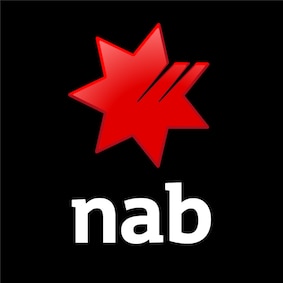What is an emergency fund?
An emergency fund, or rainy day fund, is a way to save emergency money to help you cover the cost of unplanned expenses. This could include losing your job, a medical emergency or your car breaking down.
Having an emergency fund means you’ll be financially prepared for an emergency without needing to borrow money or use a credit card. It means you can pay to get your broken-down car back on the road, or cover your everyday expenses while you look for a new job, without the risk of getting into debt.
How much should I have in my emergency savings?
The general rule for an emergency fund is to aim to save two to three months’ worth of living expenses – enough to keep you going if you find yourself unable to work for a few months. However, this isn’t a hard and fast rule. You should consider your own circumstances, including how much emergency money you’re able to save and how much of a financial buffer you need to feel comfortable.
How to build an emergency fund
Set a savings goal
To set a savings goal, work out what your living expenses are each month and then multiply that by the number of months you want your emergency fund to cover. When working out your living expenses, make sure to include:
- rent or home loan repayments
- groceries
- transport costs, like petrol or public transport fares
- loan and credit card repayments
- bills like electricity, gas, internet and phone.
You can use our budget planner to create a monthly budget. If you’re not sure exactly where your money’s going each month, you can track your spending in the NAB app.
You can also use the NAB app to set and track your savings goal.
Open an account and start saving
Your emergency fund should be for emergencies only. Ideally, you want it to be separate from your other accounts, so you’re not tempted to dip into it.
Consider opening a separate savings account just for your emergency fund. Look for an account with a good interest rate so you can earn a bit extra each month on your savings.
Explore our NAB Reward Saver and NAB iSaver accounts, and learn how to open an account online.
Automate your savings
Now that you’ve set up an account, it’s time to start making regular deposits. Consider setting up a regular payment so money is automatically transferred to your savings account every time you get paid.
Maximise your offset account
If you have a home loan, consider using an offset account as your emergency fund. That way the money in your emergency savings will also lower the amount of interest you pay on your home loan, while still allowing you to access the money quickly if you need it.
Learn more about how offset accounts work.
Continuously contribute to your emergency fund
Whenever you find yourself with some extra cash, like a tax refund, consider using it to boost your emergency savings.
Use your emergency fund for emergencies only
Remember, your emergency fund should only be used in an actual emergency. It might be worth setting some rules for yourself around what counts as an emergency to you.
If you think you’ll be tempted to use it for non-emergencies, consider making the money a little harder to access. One option is to hide your emergency fund from view in online banking. This way you won’t see the balance when you log in and you’ll be less tempted to spend the money. Learn how to hide an account in NAB Internet Banking.
More money saving tips
What is a savings account?
Learn how a savings account works, and why it might be the best option to help you reach your money goals.
10 money saving tips to help you reach your goals
Read our simple tips you help you control your spending and save more money.
How to budget
Create a budget to help you meet your money goals.
Get in touch
Customer Support Tool
Solve problems quickly online with our easy-to-follow guides. Simply select a topic and we’ll direct you to the information you need.
Contact us
Visit our personal banking contact page for FAQ’s and how-to-guides, help from our virtual assistant and contact numbers.
Visit a NAB branch
Visit us in person at your nearest NAB branch or business banking centre.
Important information
Apologies but the Important Information section you are trying to view is not displaying properly at the moment. Please refresh the page or try again later.
The information contained in this article is intended to be of a general nature only. It has been prepared without taking into account any person’s objectives, financial situation or needs. Before acting on this information, NAB recommends that you consider whether it is appropriate for your circumstances. NAB recommends that you seek independent legal, financial and taxation advice before acting on any information in this article.
Target Market Determinations for these products are available at nab.com.au/TMD.

